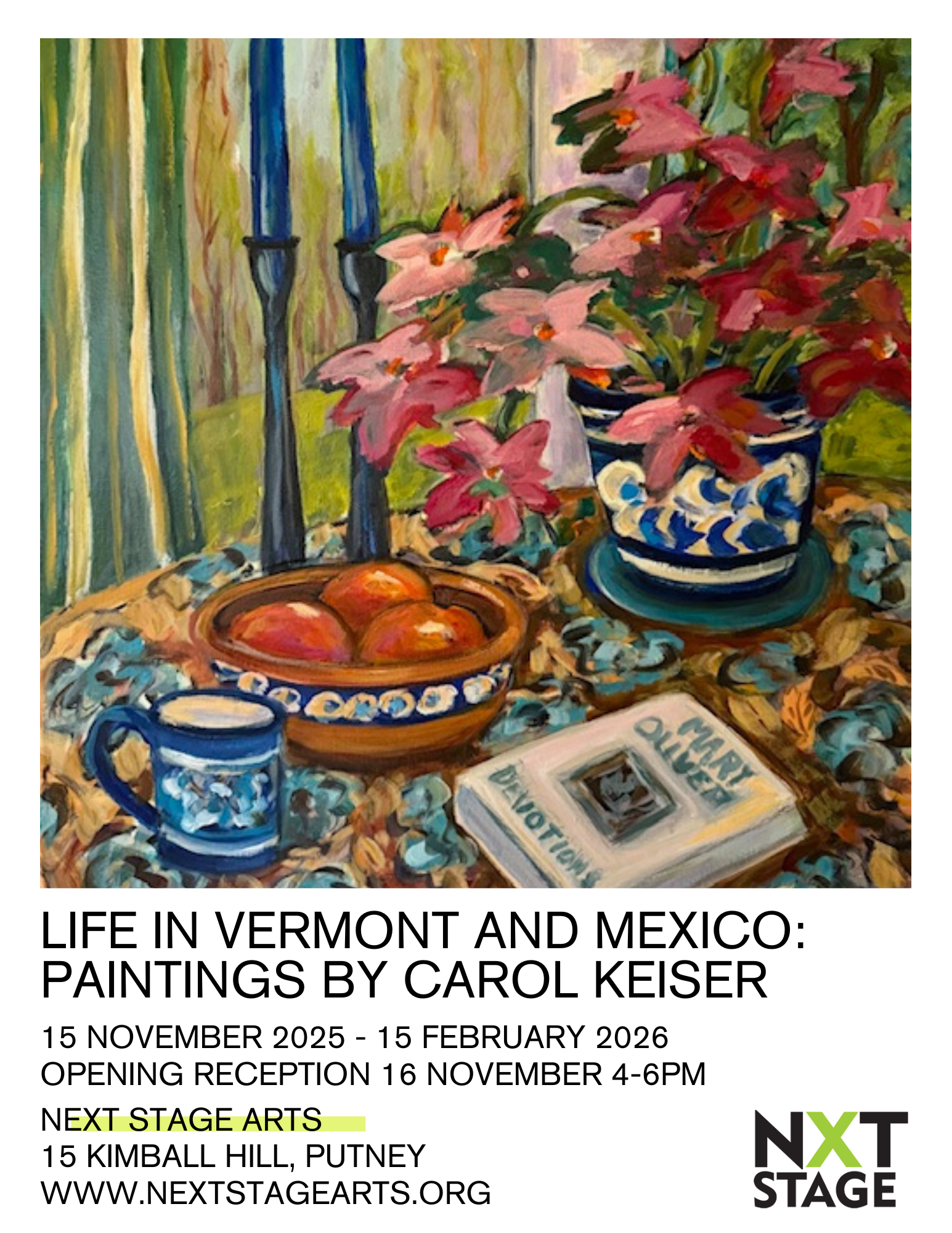ARTIST STATEMENT
My work is inspired by the world around me—my life in the countryside of Putney, Vermont, and my time living in Mexico, a country of vivid color and striking contrasts.
I am always looking, looking, looking. Most often it is a color, or a particular color relationship, that moves me to capture the essence of what I see. Sometimes I work from memory or a thumbnail sketch, but the starting point is always something external that catches my eye and draws me closer.
Color is everything, whether I am working on a still life, a landscape, or a figure study. It possesses its own magic and energy, and it is this vitality that excites me to create. My paintings serve as a visual diary of my life—recording the places I’ve been, the experiences I’ve had, and the feelings that have moved me.
BIOGRAPHY
Carol Keiser grew up in Wellesley, Massachusetts. She attended the University of New Hampshire and Ohio State University, and earned a master’s degree from Antioch University’s Graduate School. She also studied figure drawing at the Art Students League of New York.
Carol settled in Putney, Vermont, where she began a pottery studio. After 15 years, she launched her own hand-painted art tile business, combining her love of color with her knowledge of ceramics. Her tile designs and murals often derive from her paintings, and occasionally a painting is inspired by a tile design. Whether painting with glazes on tile or acrylics on canvas, Carol thrives on exploring color.
She divides her time between her studios in Putney and Mexico and travels when possible. She has attended an artist colony in Costa Rica and painted in Italy and France.
Her favorite artists include Matisse, Bonnard, Milton Avery, Nell Blaine, and Ambrose Webster. Carol has exhibited her paintings in the United States and Mexico.
In 2015, she was inducted into the National Association of Women Artists (NAWA) in New York. She has been listed in Who’s Who since 1995 and will be included in Volume 12 of International Contemporary Artists this year.
The Next Stage Gallery is open during events, and by appointment with the artist or by contacting Next Stage at info@nextstagearts.org or (802) 387-0102.

